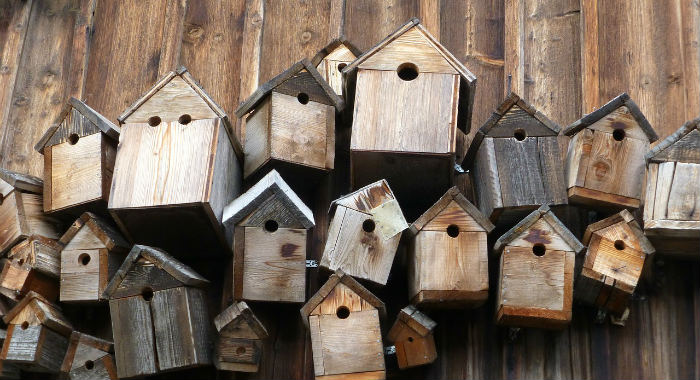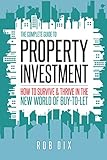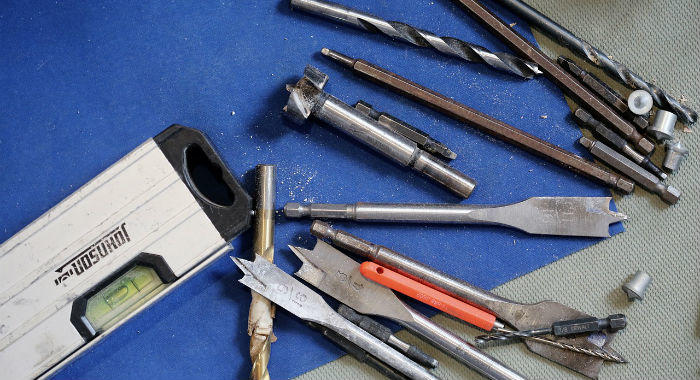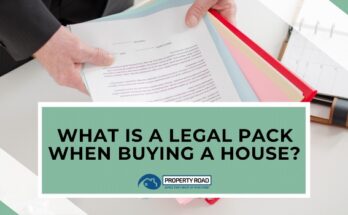Property is one of the most popular choices for those who want to invest their money.
However, deciding whether or not you want to invest your money in property is a different matter.
Everyone has their reasons for investing, but you have to carefully weigh up the pros and cons of property investment in the UK before you jump in. As property is a long-term, high stakes investment, you want to ensure that your money is going where it should be.
What Is An Investment Property?
At the very basic level, it’s a property other than the home in which you currently live that you purchase for investment purposes.
There are two prime uses for an investment property: the first is that some investors like to rent out the property as a second income and the second is that they buy it to improve it before selling on.
An investment property doesn’t have to be a standard house or flat; it can also be a commercial property or even land.
However, the majority of those who invest their money in property do tend to purchase residential property much of that is down to the flexibility that it offers as a second home.
At the moment, new legislation is giving would-be investors pause, which means that there are plenty of things to think about before piling cash into any home on the market right now.
Only once you are informed of the pros and cons of the property investment in the UK, can make a clearer choice.
Our Favourite Books On Property Investing:
What Is A Second Home?
In a nutshell, a second home is a residence that you intend to occupy for at least part of the year. Some people use this as a holiday home and others a city pied-a-terre purely for commuter purposes.
The rules on stamp duty for a second home changed two years ago, where 3% extra is charged for the purchase of a second home.
Pros
Long-Term Returns
As with anything that you may be looking to invest in, property prices can go up and down over time.
When you focus on the property of your choice being yours for the long-term, you can be very confident that, at some point, the value of the property will rise and give you the return that you’ve been looking for.
You do have to learn to stick out the fluctuations in the market, so you could choose to make upgrades and renovate your investment property to ensure that you get the return you are looking for.
Numerous Options
You could choose to let out your property to tenants, which keeps the mortgage paid and can garner you a small profit at the same time.
This is a good way to keep the house in the right order with a little financial relief for you while you are deciding what to do with the property in the long term.
Some people choose to let out their second home so that it’s not just sat empty while gaining some value.
Another option is using your second home as a holiday home. You could let it short-term while you’re not using it, but otherwise be able to use it yourself.
Eventually, you could pass it down in the family or sell it on for a tidy profit. The options of an investment property are numerous in this sense, because you are not limited to what you could do with it.
Falling Prices
When property prices are on a downturn, you have the perfect moment to swoop in a scoop up a property that will be at a bargain price.
Not every area of the country will see falls in the market, but that doesn’t mean that you can’t find a good deal, anyway.
As with anything, there is always a flipside to what seems like a great idea. You may still be uncertain about where you would like to put your money, and choosing to put your money into something that could hopefully generate a profit is a risk.
The question that you need to ask yourself is whether or not you could sit on that risk with the property as a second home, or you want to learn what is considered investment property for tax purposes and go from there.
Either way, here are the cons that you need to know before you go ahead:
Cons
Stamp Duty
Every property has stamp duty on it that needs to be paid when it’s purchased. Buy-to-let landlords have seen changes to the tax legislation in the last year, which means that thorough research has to be done before investing any cash.
There is a 3% stamp duty surcharge to consider if you are buying an investment property in the UK, which is liable for the entire cost of the property.
This can work out higher than expected, so you really should ensure you have the cash before you sign on the dotted line.
Changes To Taxes
The tax relief on ‘wear and tear’ and mortgage interest relief have both been quietly done away with or reduced in recent years, which is something you need to know before going ahead.
Mortgage interest relief is to be reduced and capped at 20% by 2020, which can impact you greatly should you choose to be a landlord.
If you are a higher-rate taxpayer, this will affect you and your finances.
Difficulty Borrowing
While the Bank of England base rate is still comfortably sitting at 0.5%, the cost of borrowing is still cheap.
However, lenders are now double-checking an entire property portfolio when choosing to lend enough money for a new mortgage.
If some of your properties don’t generate enough cash to cover mortgage payments, you could be turned away – regardless of the impeccable credit rating and payment history you may have.
As you can see, there are a number of pros and cons of property investment in the UK.
Just remember that second homes have an additional stamp duty charge but do give you options for your future.
That means you can choose to use it as a holiday home you can use for part of the year, or a house you choose to buy-to-let and bring in tenants to relieve you of the mortgage costs.
When you consider the pros and cons of property investment in the UK, you can find more clarity in your decision.
Ultimately, it is going to come down to whether you want to have an asset to sell quickly or one you want to grow in value over time. Researching as much as you can is going to help you to make that choice an easy one.
How To Reduce Risks In Property Investment
Some risks are worth taking, some are not. It’s all about calculating the risk/reward ratio and then going for the risks that make the most sense.
Even then, if you can reduce the risk without affecting the rewards too much, it’s worth doing.
Here are 11 methods you can use to reduce the risk of any property investment you make.
1) Do Your Research
Too many people rush into buying an investment property without properly considering their purchase.
It’s understandable. The excitement of buying flats and houses to rent out or sell on can grip even the most level-headed buyers.
However, it’s important you keep your feet on the ground and look all the opportunities and risks an opportunity offers.
If you plan on renting it out, make sure you calculate your yield potential. Make sure you understand the nuances of that particular investment and the area it’s in. Check there is a demand for that type of property in that area.
The better you do your research, the less likely you are to make an expensive mistake.
2) View The Property
This is important at any time but particularly relevant when buying properties at auction.
It can be tempted to rush into buying without first having at least one viewing. This is asking for a disaster.
Many an investor has been broken by not viewing a property and then later finding out there’s a major defect.
But it’s not just that. Unless you’ve viewed a property, how do you know what work needs doing and how much it’s likely to cost?
It’s almost impossible to come up with a budget if you don’t view it in person and inspect the condition of it very carefully.
3) Read The Legal Pack
This is another auction one. Before making any bids on a property, be sure to read the legal pack.
This will give you the lowdown on what you need to know about it before you commit to parting with your hard-earned cash.
In fact, reading a legal pack is really important when buying a property at auction. You have to be very brave (or perhaps a little foolish) to buy anything without first reading the legal pack.
4) Buy Properties In Different Areas
Another good method for reducing risk when investing in property is to ensure you purchase buildings in different areas.
To begin with, this may just mean different areas of a single city. However, longer term you should be looking to grow your portfolio over different areas of the country (and to go a step further, buying in different countries, too!).
By doing this you spread your risk so that if one area experiences a downturn in property values, you still have investments in other areas to cushion the blow.
It’s not uncommon for one area to experience a downturn if a major local employer closes or moves from the area or if a lack of investment causes an increase in crime. For that reason, buying in different areas is very much recommended.
5) Buy Different Types Of Property
From flats to houses to HMOs, there are a wide range of types of property available.
Buy ensuring your portfolio contains a good mixture of different types, you’ll protect yourself from any changes in regulations or popularity in any one kind.
For example, the rules for HMO properties regularly change. If your property is entirely HMOs then that can cause major headaches.
However, if you don’t have any HMO’s then you may be missing out on the substantial rewards they can bring in terms of income.
A healthy portfolio will have a balanced mix of investments.
6) Buy To let AND Buy To Sell
Many property investors are either exclusively buying to rent out, or exclusively buying to renovate and resell.
So, should you buy to let or buy to sell? There isn’t really a right or wrong answer to this but many savvy investors do a mixture of the two.
Buy to let investments are great for growing your portfolio value and benefitting from any long-term value increases. In many ways, they are a great way to build a ‘pension pot’.
On the other hand, buying a property to renovate and sell on can give you a fast return and improve your cash flow. They are great for the relatively short-term ‘wins’.
Many investors start by doing up run-down homes to sell on to build up their capital and then eventually move to become landlords.
By doing both together you are able to better respond to changing market conditions. You are also securing both a short and long-term income.
7) Buy A Mixture Of Residential & Commercial Properties
The value of residential properties and commercial properties do not always rise and fall at the same rates.
Our ever-changing high streets mean that commercial properties can quickly rise or fall in value. For instance, if a major branded store opens or closes, it can impact the value of the surrounding buildings positively or negatively.
This can happen entirely independently of what the residential market is doing.
Equally, residential property can change in value based on many factors that don’t really apply to commercial ones.
So, to reduce your risk as much as possible, aim to own a combination of residential and commercial investments. This will help protect you against any unexpected falls.
8) Look For Properties Being Sold Under Value
This seems an obvious one but if you see a property that’s clearly being sold under value, snap it up.
That doesn’t mean rush in and buy it without giving it proper consideration. Yet, it does mean that when there is a genuine reason as to why you’re able to buy it at a knock-down price, you should take the opportunity.
Of course, such opportunities don’t come around very often. But, when they do, they give you a lower risk as it can literally increase in value the day you collect the keys.
9) Get Multiple Quotes For Any Work That Needs Doing
When buying any kind of property, you should always be aware of the level of work you’ll need to carry out to get it up to scratch.
Sure, you may be in a position where you can carry out much of the work yourself, but you’ll still need to price up materials.
For work you cannot complete yourself, you’ll need to hire the experts. Getting quotes from at least 2-3 companies or tradespeople for the work that needs doing will ensure you avoid any nasty surprises.
Equally, if you suspect the building is suffering from subsidence, damp, or other issues that would require substantial work, get it investigated by an expert before putting in your offer.
10) Play To The Market Conditions
Having an awareness of the current health of the property market, not just nationally but locally too, will also help you avoid to much risk when investing.
The UK market has a great track record of growth, but, along the way, there have been numerous sudden falls in prices.
Understanding where average prices are at the moment and where they may be likely to be over the coming months and years will help you stay one step ahead.
Predicting a fall in house values? Maybe now’s a good time to sell up and wait for an opportunity to buy back in.
Predicting a rise? Getting your cash flow right and snapping up as many properties as you can before prices increase too much could be a wise strategy.
Of course, predicting the future is much easier said than done. But, if you at least have an understanding of the current factors affecting the market you at least have a fighting chance of maximising your opportunities.
11) Find The Right Finance Deal
If you are buying entirely with cold hard cash, this one won’t really be a concern. However, if you’re buying property using any kind of finance, take heed.
Not all types of finance were created equal. Money lent over shorter terms often comes with high interest rates. Yet, locking in lower rates by committing to lending for longer periods of time gives you less flexibility for the future.
That’s not to say shorter terms are better than longer terms or vice versa. The right kind of finance deal for you will depend on a number of factors, not least your current situation and future plans.
However, getting the right finance deal for you will help you reduce your risk by ensuring your level of exposure is exactly what you’re comfortable with.
The Key Message Is To Spread Your Risk
As you’ve seen, spreading your risk is often the best way to reduce risks in property development.
Choosing to buy different types of property, in different areas, with a mixture of residential and commercial will help you diversify. It means if you have a problem with one property, the impact is cushioned by the ones without issues.
Of course, having multiple investments isn’t always an option.
When that’s the case, properly understanding what you’re getting in to by viewing it multiple times and getting any quotes is your best move.
However, you decide to try and reduce your risk just remember that it’s never possible to completely remove all risk. If it were that easy, almost everyone would be doing it.
Remember, you can also potentially save money by using an online agent, check out our online letting agent reviews to find the best one for you.
Can you live in an investment property?

One of the temptations for an investor is that buy to let mortgages
have lower rates of interest and may be easier to acquire them a personal
mortgage on a residential home.
If you’re wondering whether you can live in an investment property, then the answer is no.
Partly this is down to Financial Conduct Authority (FCA) regulations over landlord and residential mortgages.
It needs to be appreciated that usually a buy to let
mortgage will not come under FCA regulations, so a commercial investor has more
flexibility than those who obtain a residential mortgage.
You will find that a buy to let mortgage contract will
clearly stipulate that the customer will not be allowed under any circumstances
to live in the property – even for just one night since the mortgage will need
to be regulated and will not be a commercial proposition.
Also, your mortgage will be invalidated if you don’t reveal that you are living in the property, so you’ll have to repay the loan in full immediately.
However, it is possible to access a buy to let regulated
mortgage, which will allow yourself or a family member to meet FCA guidelines if
you occupy 40% or more of a mortgaged property.
Is it better to buy an investment property before a home?
As a first-time buyer, there may be an attractive
proposition if you’re looking to buy an investment property before you buy a
home.
There’s no doubt that buy to let offers an alternative route to property ownership, but whether it’s right for all first-time buyers who may be struggling to buy where they live is a moot point.
While you may have saved up a big deposit, you may still not
be able to afford to buy a property in your area so you could consider
investing somewhere else in the country and continue renting.
On the surface, investing elsewhere looks to be a good idea
since the asset may well deliver a financial return over the long-term or
potentially act as a home for your retirement.
As mentioned earlier, there will be responsibilities as a landlord and you will be responsible for all maintenance bills.
Also, while you may have a large deposit, you may find that some lenders will not offer any of their products to first-time buyers at all.
In addition, you will need to prove to a lender that the
rental income will cover 145% of the mortgage payment before they will consider
offering a loan.
Sourcing a buy to let mortgages as a first-time buyer is more difficult, but it’s not impossible, and you should realistically have a deposit of at least 25% of the buy to let property’s value.
What are the advantages of having an investment property?

The advantages of having an investment property are
potentially lucrative – especially if you retain the property for the long-term
to enjoy cumulative house price rises. The advantages also include having a monthly
income for paying the mortgage and any maintenance bills.
However, you’ll need to buy the right type of property that tenants are looking for, and it must be in an area where tenants want to live – this is not necessarily what a property investor will be considering.
Though with house prices predicted to continue rising, thanks to strong demand from tenants and first-time buyers, the capital investment could be among the best performing of all investment assets.
Can I buy an investment property without owning a home?
If you have a large enough deposit, a high enough income and
can meet the lending criteria for a lender, then yes, you can buy an investment
property without owning a home.
Whether you have been a long-term tenant or are an expat, then a buy to let investment property may be an ideal vehicle for your money.
However, the range of financial products available may be
limited since many lenders would prefer a borrower to own their home, usually for
at least six months before they will offer a buy to let mortgage.
The pros and cons of any financial investment
Essentially, you should research carefully the pros and cons
of any financial investment as to whether that particular investment is right
for you and this also extends to property investment. You should also consider:
- While property prices have performed strongly in
recent years, that’s no prediction that they will do so in future - You will need to find quality tenants who will look
after your property and pay rent on time – that’s easier said than done - You should appreciate that running a buy to let
investment will be take up more time than you expect - Be aware that the tax changes introduced by the
government in recent years have had a dampening effect on the enthusiasm of
investors since it’s not as lucrative as it once was.
Indeed, to underline the last point, growing numbers of landlords with just one rental property are deciding to leave the market.
For those who are considering the pros and cons of property investment, and if you are looking for a long-term investment opportunity that should perform strongly, then you need to research carefully.
We have a number of articles and guides related to property investing, though we also strongly advise you seek professional advice before risking any of your own money.
Remember, you can also potentially save money by using an online agent, check out our online letting agent reviews to find the best one for you.















